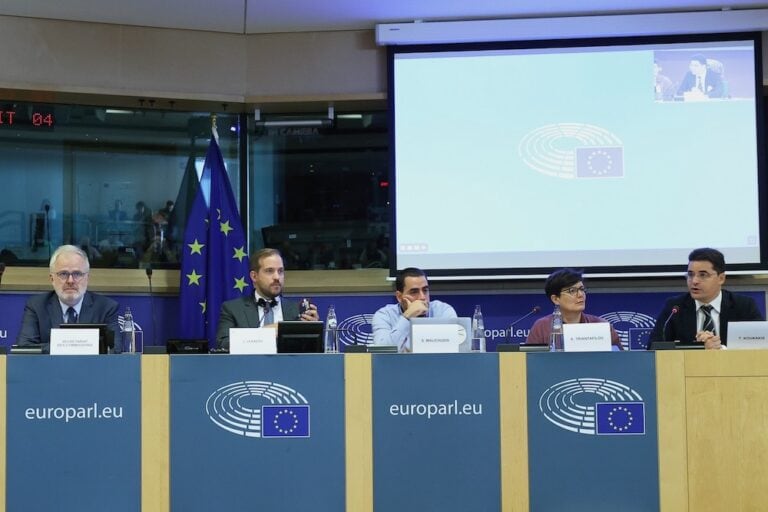(IFJ/IFEX) – The following is a media release from the European Federation of Journalists (EFJ), an IFJ regional group: EFJ Condemns Surveillance Law in Sweden The International Federation of Journalists and its European group, the European Federation of Journalists (EFJ) today expressed ‘incredulity and dismay’ following yesterday’s vote by the Swedish Parliament in favour of […]
(IFJ/IFEX) – The following is a media release from the European Federation of Journalists (EFJ), an IFJ regional group:
EFJ Condemns Surveillance Law in Sweden
The International Federation of Journalists and its European group, the European Federation of Journalists (EFJ) today expressed ‘incredulity and dismay’ following yesterday’s vote by the Swedish Parliament in favour of a controversial bill allowing all international emails and phone calls to be monitored in the name of national security.
“It is astonishing that one of Europe’s oldest democracies where model standards of press freedom have been taken for granted has dealt such a blow to civil liberties,” said IFJ/EFJ General Secretary Aidan White. “It is further confirmation that in the age of security, anonymity and privacy in private communications are all but dead and that journalists face new battles to protect their sources of information.”
The vote, one of the most divisive in Sweden in recent years, had initially been scheduled for early Wednesday but was postponed after more than one-third of MPs voted to send the bill back to parliament’s defence committee ‘for further preparation.’ After the committee required that the centre-right government safeguard individual rights further in an annex to the law to be voted on in the autumn, the bill narrowly passed.
“Throughout journalism there will be incredulity and dismay at this decision,” said White. “No journalist anywhere in Europe can now be certain that their work is not subject to official surveillance, that their telephones are not being tapped and that they can with any confidence protect their sources.”
The EFJ affiliate in Sweden, the Swedish Journalists Association had heavily campaigned against the proposal as an attack on civil liberties that would create a ‘big brother’ state.
The Swedish union demanded yesterday evening the creation of a “truth commission” to investigate how the Swedish authorities have already kept under surveillance private phone calls and e-mails, which is currently illegal under Swedish law. The new surveillance law will not go into effect until January 2009.
The EFJ agreed at its annual meeting in Berlin last weekend to strengthen its campaign to protect journalists’ sources.
The EFJ represents over 250,000 journalists in over 30 countries.


